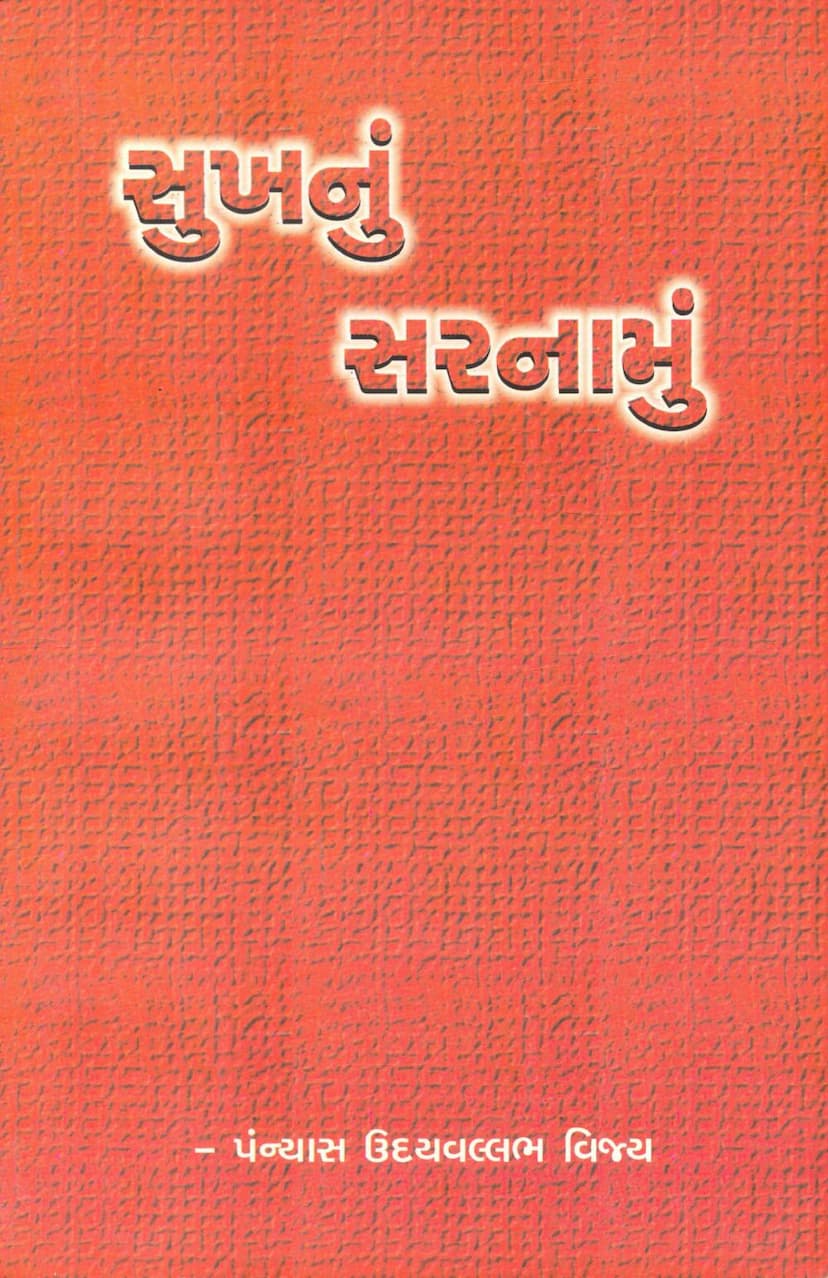Sukhnu Sarnamu
Added to library: September 2, 2025
Loading image...

Summary
This book, "Sukhnu Sarnamu" (The Address of Happiness) by Muni Udayvallabhvijayji, published by Pragna Prabodh Parivar, offers a profound critique of modern consumerism and advocates for a return to Jain philosophical principles for achieving true happiness. The book argues that the relentless pursuit of material possessions, driven by consumerist culture, leads to dissatisfaction and unhappiness.
Key Themes and Arguments:
- The Illusion of Material Happiness: The book contends that society has erroneously equated happiness with the accumulation of material goods. This false belief, fueled by advertising and societal pressures, creates a cycle of endless wanting and dissatisfaction. The author uses vivid examples to illustrate how modern life has redefined poverty not by lack of essentials, but by the absence of non-essential items like refrigerators or washing machines, leading to a "poverty complex."
- Critique of Consumerism: The text strongly criticizes the "consumerist culture" and its detrimental effects on individuals and society. It highlights how the desire for more leads to an unsustainable drain on natural resources and contributes to environmental degradation. The author points out the irony of seeking happiness through acquiring more and more, only to find emptiness and dissatisfaction.
- The Jain Perspective on Happiness: "Sukhnu Sarnamu" draws heavily from Jain philosophy, emphasizing principles like:
- Aparigraha (Non-possession): The idea that limiting one's possessions is crucial for inner peace.
- Bhogopbhog Pariman (Limitation of Enjoyment): The concept of consciously restricting the use and consumption of pleasures and worldly items.
- Ichha Nirodh (Cessation of Desire): The ultimate goal of controlling and eradicating desires, which are seen as the root of suffering.
- Samayik (Equanimity): Achieving mental calmness and balance, independent of external circumstances.
- Sadhgi (Simplicity): Advocating for a simple lifestyle, where basic needs are met without excessive indulgence.
- Santosh (Contentment): The core message that true happiness lies in contentment with what one has, rather than the endless pursuit of more.
- The Danger of "Sheep-like" Imitation: The book criticizes the blind imitation of Western lifestyles and values without considering their suitability for the Indian context. It warns against adopting foreign customs and trends merely for the sake of being perceived as "modern" or "developed," often leading to a loss of cultural identity and practical disadvantages.
- The Importance of Inner Wealth: The author stresses that true wealth is not material but spiritual and psychological. Happiness is an internal state, cultivated through self-discipline, contentment, and the reduction of desires. The book suggests that the external pursuit of happiness through material possessions is misguided.
- "Progress" as Destruction: The book redefines "progress" not as the unchecked exploitation of nature and resources, but as a harmonious and sustainable way of living in balance with the environment. It argues that current notions of progress, driven by industrialization and consumerism, are actually leading to destruction.
- The Power of Intention and Desire: The text delves into the Jain concept of "Leshya" (mental disposition), explaining how negative mental states like greed and attachment (associated with Krishna and Neel Leshya) lead to harmful actions and ultimately, destruction. Conversely, positive mental states (like Padm and Shukla Leshya) promote well-being and spiritual growth.
- The "Address of Happiness": Ultimately, the book concludes that the true "address of happiness" is not found in external possessions or material comforts, but within oneself, in the cultivation of contentment, simplicity, and the cessation of desires. It encourages readers to turn inward and find fulfillment through spiritual practices and a disciplined lifestyle, aligned with Jain principles.
In essence, "Sukhnu Sarnamu" is a timely and relevant call to re-evaluate our modern lifestyle and to find lasting happiness by embracing the timeless wisdom of Jainism, prioritizing inner peace and spiritual growth over the fleeting pleasures of materialism.